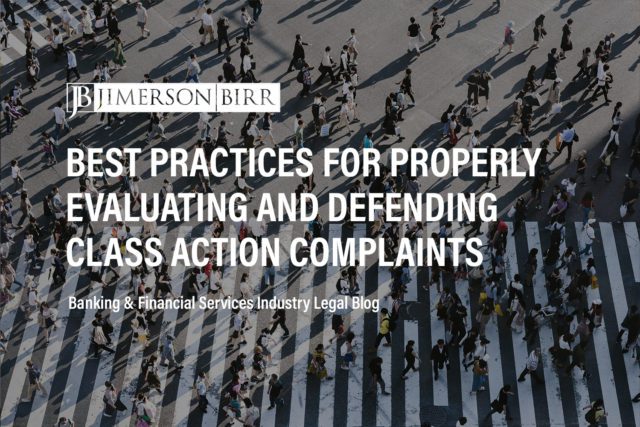What does compelling arbitration or mediation in class actions entail?
Compelling arbitration or mediation involves utilizing alternative dispute resolution (ADR) methods to settle disputes outside the courtroom, which can help reduce litigation costs and time spent defending against class action litigation. In Florida, these ADR methods apply to various contexts, including class action litigation defense when parties agree to arbitration or mediation.
Need help compelling arbitration? Schedule your consultation today with a top class action defense attorney.
Which laws and regulations apply to compelling arbitration or mediation in class actions?
Florida has specific laws and regulations that govern arbitration and mediation procedures in the state. The Florida Arbitration Code (FAC), found in Chapter 682 of the Florida Statutes, governs the enforcement of arbitration agreements and the arbitration process in the state. The Florida Rules of Civil Procedure also outline the procedural requirements for compelling arbitration in court proceedings.
Furthermore, the Federal Arbitration Act (FAA), 9 USC §§ 1-16, provides a framework for arbitration agreements and their enforcement at the federal level. The FAA applies to interstate commerce transactions and preempts state laws that conflict with its provisions.
What are the strategic benefits of compelling arbitration or mediation in class action defense litigation?
Compelling arbitration or mediation in order to reduce litigation expense in class action litigation defense matters offers the following strategic benefits:
- Cost reduction: Arbitration and mediation are often less expensive than traditional litigation, as they can reduce attorney fees, court costs, and other related expenses.
- Time savings: The arbitration and mediation process are generally faster than court trials, which can take months or even years to resolve.
- Privacy: Arbitration and mediation proceedings are usually private and confidential, unlike court trials, which are open to the public. Confidentiality can help protect the parties’ reputation and limit the potential for negative publicity.
- Flexibility: Arbitration and mediation allow parties to customize the dispute resolution process, choosing neutral decision-makers and tailoring the approach to their needs.
- Preserving relationships: Mediation, in particular, can be less adversarial than litigation, allowing parties to work together to find a mutually acceptable resolution.
- Enforceability: Arbitration awards are generally enforceable in the same way as court judgments, providing parties with a sense of security and predictability in the outcome of their dispute.
What steps should a class action defendant take to compel arbitration or mediation, and how will class action plaintiffs generally respond?
Class action defendants should follow these steps:
- Review arbitration or mediation provisions in relevant contracts: Examine the underlying agreements between the parties to identify any clauses that require or allow arbitration or mediation as the preferred method of dispute resolution.
- Ensure enforceability of the arbitration or mediation agreement: Verify that the arbitration or mediation clause is enforceable under applicable Florida and federal laws, such as the Federal Arbitration Act.
- Timely motion to compel arbitration or mediation: File a motion to compel arbitration or mediation in court as soon as possible, preferably before engaging in extensive litigation, to preserve the right to enforce the alternative dispute resolution method.
- Demonstrate the suitability of arbitration or mediation: Present a compelling argument to the court that arbitration or mediation is a suitable method for resolving the dispute, emphasizing the potential cost and time savings, the expertise of the arbitrator or mediator, and the parties’ mutual agreement to use the method.
Class action plaintiffs may respond by:
- Challenging the enforceability of the arbitration or mediation agreement: Plaintiffs may argue that the contract is unconscionable, lacks consideration, or that the defendant has waived the right to enforce it by participating in litigation.
- Asserting that the dispute is not subject to arbitration or mediation: Plaintiffs may contend that the dispute at issue falls outside the arbitration or mediation clause’s scope or does not cover the entire class.
- Opposing the motion on public policy grounds: Plaintiffs may argue that requiring arbitration or mediation in a class action context would undermine crucial public policy objectives, such as protecting consumers or employees from unfair business practices.
Possible legal defenses against compelling arbitration or mediation include the following:
- Unconscionability: The arbitration or mediation agreement is so one-sided that it is unconscionable and unenforceable.
- Lack of consideration: The arbitration or mediation agreement lacks sufficient consideration to be enforceable.
- Waiver: The defendant has waived the right to enforce the arbitration or mediation agreement by participating in litigation.
- Scope: The dispute at issue is not within the scope of the arbitration or mediation agreement.
When a set of facts is appropriate to meet the requirements of compelled arbitration, there are many paths a claimant may take. We are value-based attorneys at Jimerson Birr, which means we look at each action with our clients from the point of view of costs and benefits while reducing liability. Then, based on our client’s objectives, we chart a path to seek appropriate remedies.
To determine whether a unique situation may necessitate litigation, please contact our office to set up your initial consultation.
Frequently Asked Questions
- Can a court force a class action plaintiff to participate in arbitration or mediation?
If there is an enforceable arbitration or mediation agreement between the parties, the court may compel the plaintiff to participate in the alternative dispute resolution process.
2. Is arbitration or mediation binding in class action disputes?
Arbitration is usually binding, while mediation is non-binding. However, the parties may agree to make mediation binding if they wish.
3. What happens if a party refuses to participate in arbitration or mediation?
Suppose a party refuses to participate in arbitration or mediation after a court order. In that case, the court may impose sanctions, such as dismissing the case, entering a judgment against the non-compliant party, or assessing costs and attorney’s fees.
Have more questions about an arbitration-related situation?
Crucially, this overview of compelling arbitration or mediation in order to reduce litigation expense does not begin to cover all the laws implicated by this issue or the factors that may compel the application of such laws. Every case is unique, and the laws can produce different outcomes depending on the individual circumstances.
Jimerson Birr attorneys guide our clients to help make informed decisions while ensuring their rights are respected and protected. Our lawyers are highly trained and experienced in the nuances of the law, so they can accurately interpret statutes and case law and holistically prepare individuals or companies for their legal endeavors. Through this intense personal investment and advocacy, our lawyers will help resolve the issue’s complicated legal problems efficiently and effectively.
Having a Jimerson Birr attorney on your side means securing a team of seasoned, multi-dimensional, cross-functional legal professionals. Whether it is a transaction, an operational issue, a regulatory challenge, or a contested legal predicament that may require court intervention, we remain tireless advocates at every step. Being a value-added law firm means putting the client at the forefront of everything we do. We use our experience to help our clients navigate even the most complex problems and come out the other side triumphant.
If you want to understand your case, the merits of your claim or defense, potential monetary awards, or the amount of exposure you face, you should speak with a qualified Jimerson Birr lawyer. Our experienced team of attorneys is here to help. Call Jimerson Birr at (904) 389-0050 or use the contact form to schedule a consultation.


We live by our 7 Superior Service Commitments
- Conferring Client-Defined Value
- Efficient and Cost-Effective
- Accessibility
- Delivering an Experience While Delivering Results
- Meaningful and Enduring Partnership
- Exceptional Communication Based Upon Listening
- Accountability to Goals











